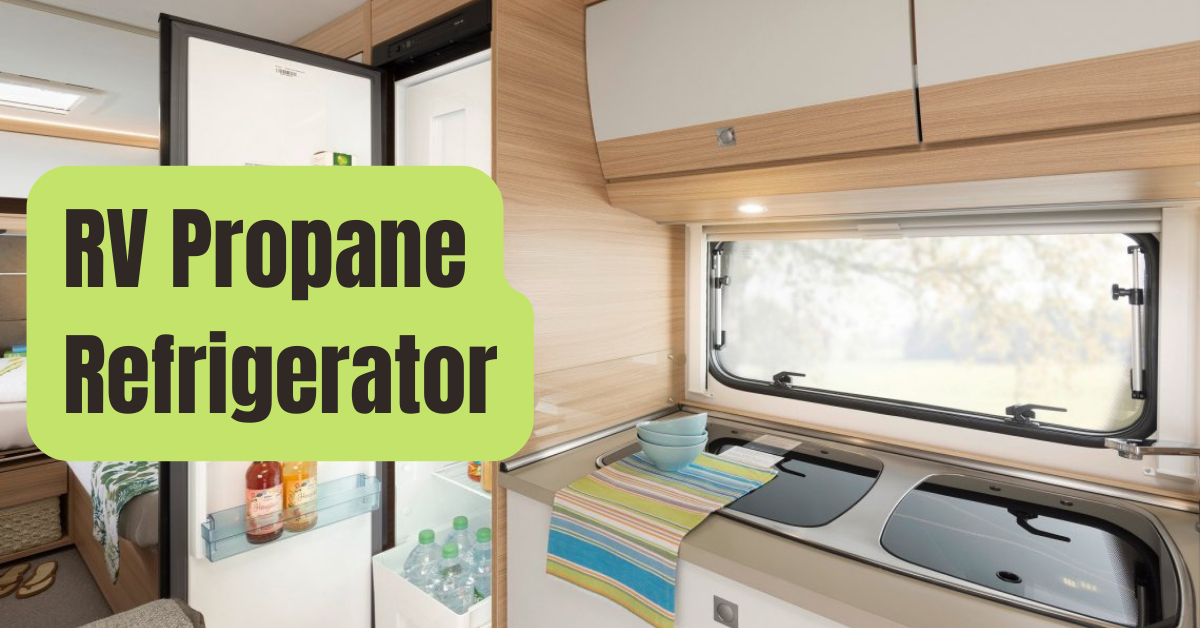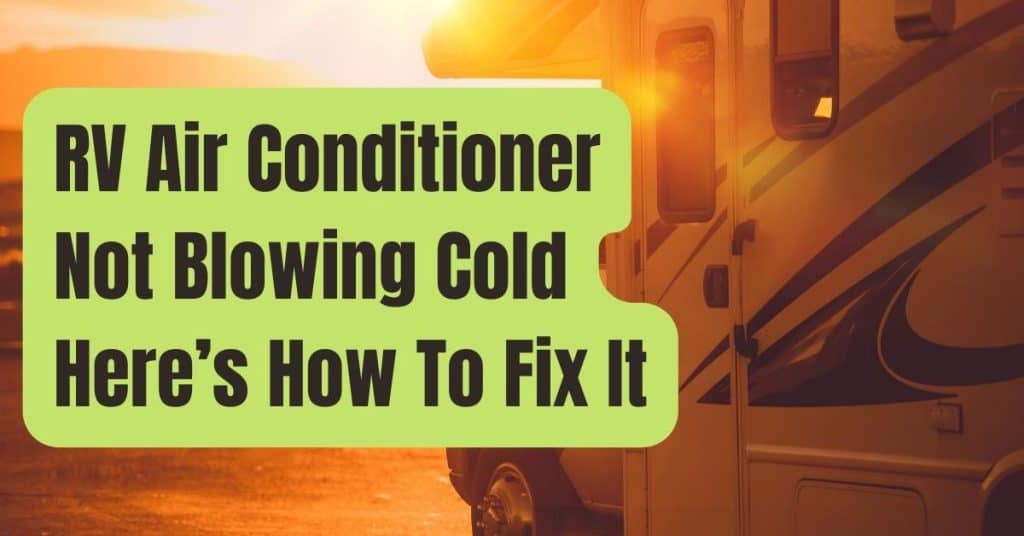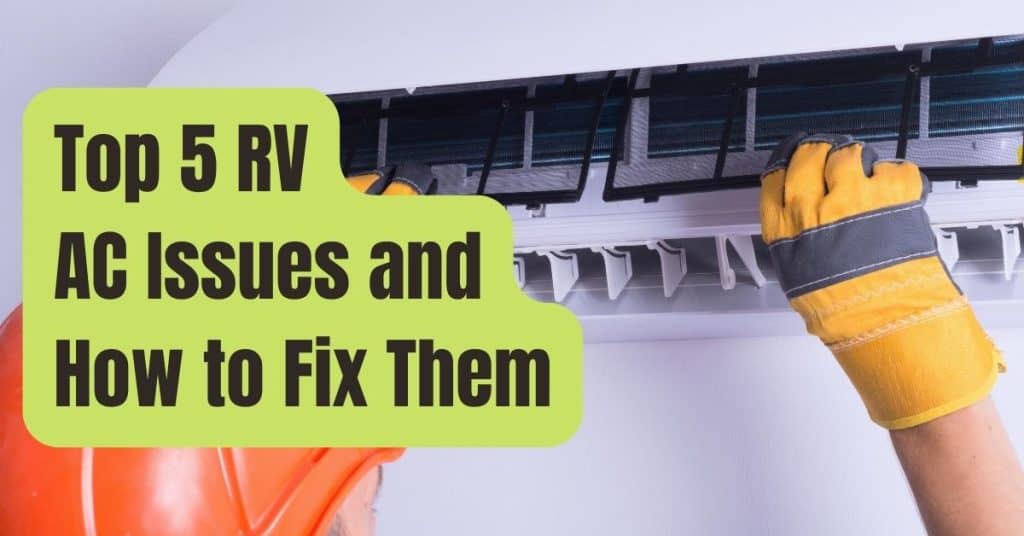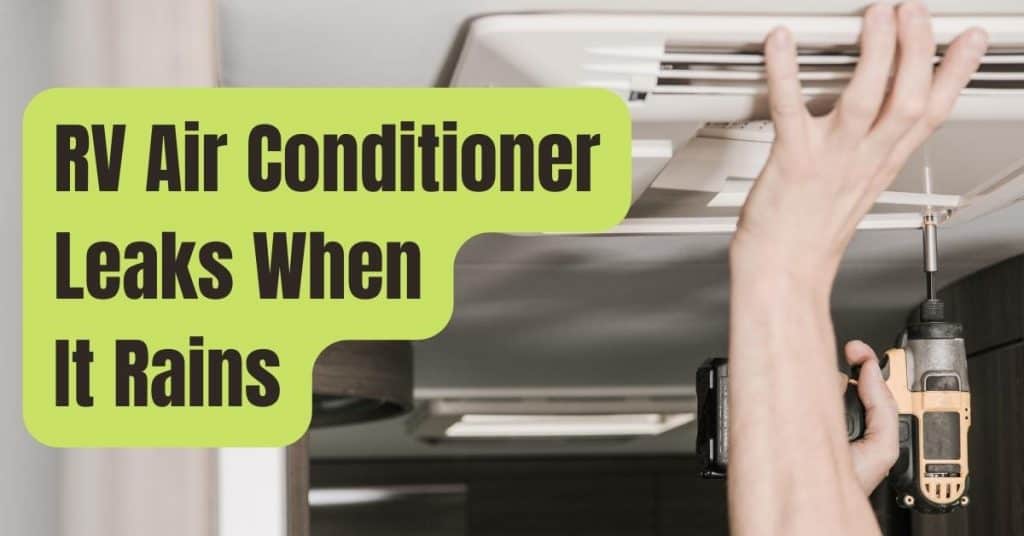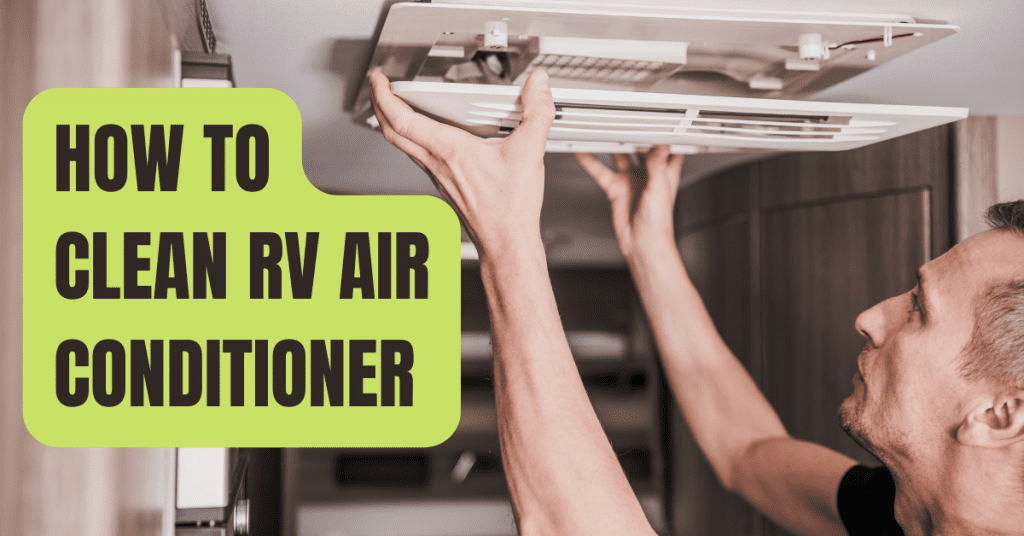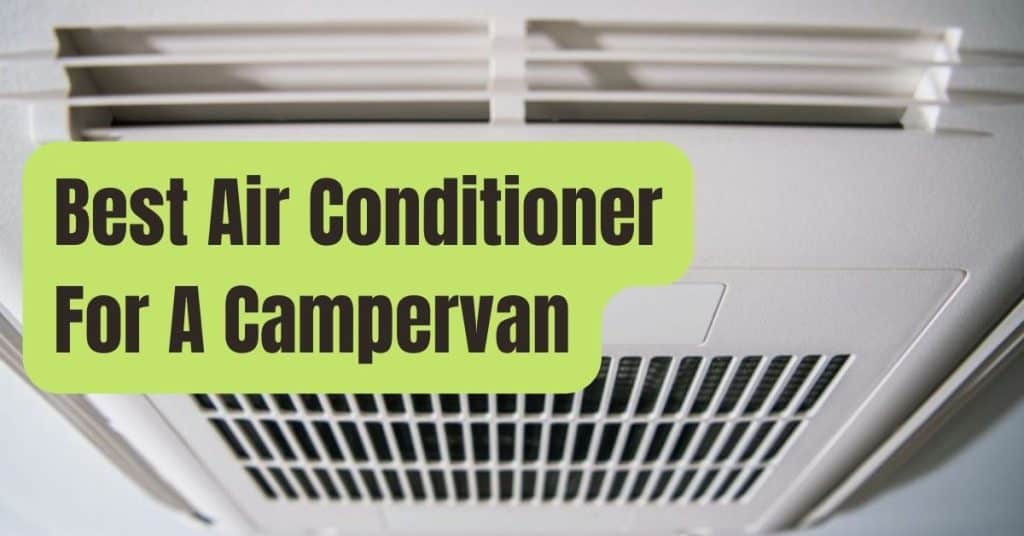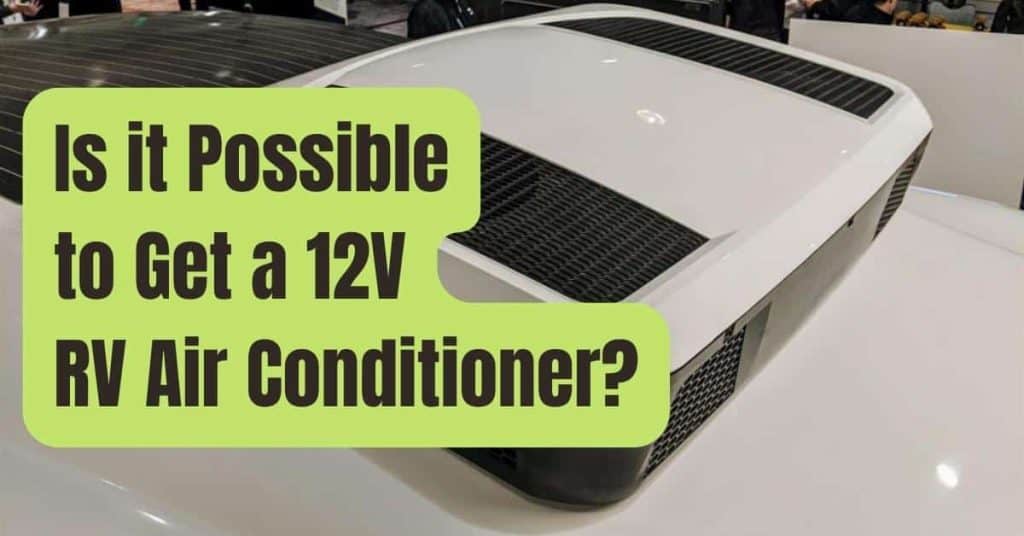Perhaps you’re new to RVing and have no idea how an RV propane fridge differs from the one in your home.
To properly take care of and maintain your refrigerator, you must be aware of the differences.
Let’s take a closer look at how your propane RV fridge functions before identifying a few efficiency-boosting suggestions.
What Is a Propane Fridge for an RV?
Propane is the energy source for an RV refrigerator.
Propane, 120V AC electricity, or 12V DC power are used to power two-way and three-way alternatives.
Instead of employing the compressor technology seen in electric refrigerators, RV propane refrigerators collect heat from the inside through an absorption technique.
How a Propane RV Fridge Operates

Your refrigerator is cooled by a mixture of hydrogen, ammonia, and water.
Heat from a propane flame initiates the cooling process first.
When the ammonia reaches its boiling point, this flame starts heating the ammonia and water mixture.
Then it separates from the water by evaporation.
The condenser is where the ammonia gas is sent after cooling and becoming liquid again.
The absorber receives the water.
In the condenser, the ammonia and hydrogen gas mix to create new gas.
Here is where absorption takes place.
The heated air in the refrigerator is drawn out of the refrigerator when the ammonia and hydrogen gas combination evaporates.
Along with the water, the gas is returned to the absorber.
The ammonia then resumes its liquid state.
The process starts again when the hydrogen gas is brought back to the evaporator.
How Long Can a Propane-Powered RV Fridge Operate?
Depending on size and effectiveness.
About 1.5 pounds of propane will be used each day by a 10 to 12 cubic foot RV refrigerator.
Because older versions have lower thermal efficiency, they will require more.
The colder air will be circulated within the refrigerator with the aid of a cooling fan, consuming less propane.
Maintaining level at all times will improve efficiency.
Depending on how much propane you use for other uses like cooking and heating, a 20lb propane tank will power your RV refrigerator for roughly two weeks.
RV Propane Fridge Advantages
RV propane fridges are a common option due to their strength.
Refrigerators from homes are inadequate for RV travel.
Smaller electric refrigerators include moving elements that may be jostled and are powered by a compressor.
Due to the absorption process, an RV propane fridge has no moving components, which reduces the likelihood of broken items.
For off-grid camping, propane will work best if you don’t have solar electricity.
Since RV propane fridges don’t need power to run, they may keep working wherever you park.
You also don’t have to worry about topping up your tanks since RV propane fridges can operate on that fuel for days or weeks.

RV Propane Fridge Drawbacks
An RV propane fridge must be kept level to operate properly.
Since the ammonia liquid is pulled down by gravity, installing it on uneven ground will reduce the fridge’s efficiency.
If the ammonia is not dispersed appropriately, it may also harm the evaporator coils.
Pro Tip: Master the art of RV leveling to keep your refrigerator in good working order.
RV propane refrigerators are less energy-efficient than more recent electric refrigerators.
A bigger 10 cubic foot electric fridge will use less than half the energy of a smaller 6 cubic foot gas refrigerator.
A refrigerator cools more slowly via absorption.
Your refrigerator may need up to 24 hours or more to become food-safe.
Due to compressor technology, electric refrigerators chill down significantly more quickly.
The ammonia and hydrogen also increase your chance of harmful leaks.
A leak may need the replacement of the complete cooling system.
Sometimes it entails purchasing a brand-new refrigerator.
The gas may pose serious health risks when breathed in.
The increased danger of fire with an RV propane fridge is one last major issue.
Driving with the propane on is not advised.
However, a lot of tourists do this to prevent their meals from going bad.
An explosion may start with the smallest spark.
Debris may sever one of the gas lines if you blow a tire or get into an accident, which might result in a fire.
Suggestions For Your Propane Fridge In An Rv
Here are some suggestions to help keep your food cold because RV propane fridges don’t utilize energy as well.
You will need to do additional work to preserve the quality and longevity of your fridge since they don’t function like the residential fridge in your kitchen.
#1. Install a Miniature Fan to Improve Airflow
As was already said, a little cooling fan put within the refrigerator will aid in maintaining the circulation of chilly air.
Dead space may get overheated.
By circulating the cool air to aid in the absorption process, a fan will assist keep the heat out.
Pro Tip: To keep your food cool in your propane fridge, we investigated the finest RV refrigerator fans.
#2. Regularly Defrost
You allow air in when you open the refrigerator.
On the evaporator, the airborne water vapor condenses into droplets.
An RV propane refrigerator does not automatically defrost, in contrast to your home refrigerator.
Manual labor is required.
You should defrost the refrigerator if the absorber fins at the rear start to freeze over.
Set the fridge’s thermostat to its lowest setting at night, then go to bed.
It should have thawed by morning.
#3. Hold Your RV Level
This advice is crucial for keeping the quality of your propane fridge in your RV.
The absorption process won’t function properly if you don’t stay level, which will prevent the refrigerator from cooling.
During this procedure, the ammonia liquid must transfer from the condenser to the evaporator.
Your refrigerator’s lifespan may be shortened by ammonia that crystallizes on the evaporator coils.
#4. Make Certain Vents Aren’t Blocked
The cooling process and your health depend on your RV propane fridge’s vents not being obstructed.
First, particularly on hot days, the heat drains more rapidly through clear vents.
Vents also let in fresh air.
The propane burning process safely releases carbon monoxide as well.
You run the risk of having this hazardous gas flood your RV if the vent becomes clogged.
Safety Check: Are you smelling propane inside or outside your RV? The moment may have come to replace or improve your RV’s propane regulator.
#5. Repeal The Bugs
Keeping pests out is a part of keeping your vents clean.
Install a screen on your vent cover similar to the one below.
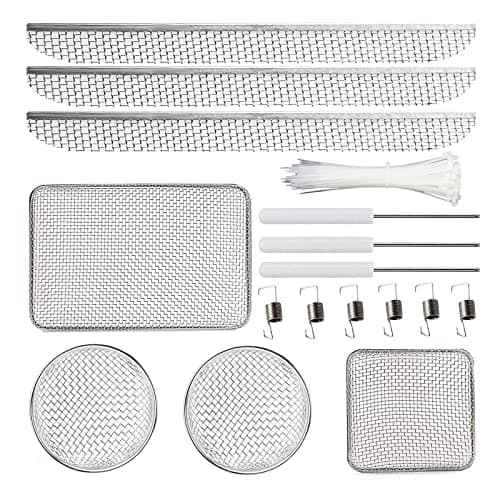
RV Flying Insect Screen for RV Water Heater Vent Cover Protects RV Furnaces from Insects Stainless Steel Mesh with Installation Tool 20″ x 1.5″ & 2.8”x1.3” & 8.5″ x 6″ x 1.3″ & 4.5” x 4.5” x 1.3′
- .Package includes:Three 20″ x 1-1/2″ RV Furnaces Bug Screens;Two 2.8”x1.3” Circular Flying Insect Screens;One…
- ◆.High Quality : Mesh screen is made of Heavy-duty stainless steel ,Minimal airflow restriction for RVs furnace vent…
Although it won’t obstruct ventilation, it will prevent bugs from getting stuck inside.
Additionally, these screens will lessen the possibility of wasps or other insects constructing a nest within the vent.
Even rats have been known to get inside.
Can I Keep My Refrigerator On While Driving?
As was already noted, some RVers may keep their propane-powered refrigerator running while traveling to prevent food spoilage.
Although handy, this is unsafe.
Although it is unlikely that a tire would blow out or that you will be in an accident, leaving the propane on might result in a fire if an accident starts a flame.
Such incidents may be avoided if you drive safely, check your tire pressure, and carry out regular maintenance.
However, there is still a chance.
Additionally, while traveling through tunnels, several states mandate that you switch off your propane.
Additionally, you must always switch off your propane when you enter a gas station.
Use alternate methods, like as lowering the temperature the night before a trip day and storing your cold goods carefully to keep them chilly while travel, rather than keeping your propane on.

You Don’t Need a Complicated RV Fridge
Your trips will be more convenient if you have an RV propane fridge.
It’s not necessary to connect to the electricity.
Moving components breaking and durability issues are less of a concern.
Although it’s not a difficult equipment, following suggestions will help you make sure it operates as effectively as possible.
You don’t want to discover that all of your food has gone bad when you get to your campground on Friday night.
Learn how your RV propane fridge works and how you can help the process to take care of it.
How recently did you defrost your propane refrigerator?

